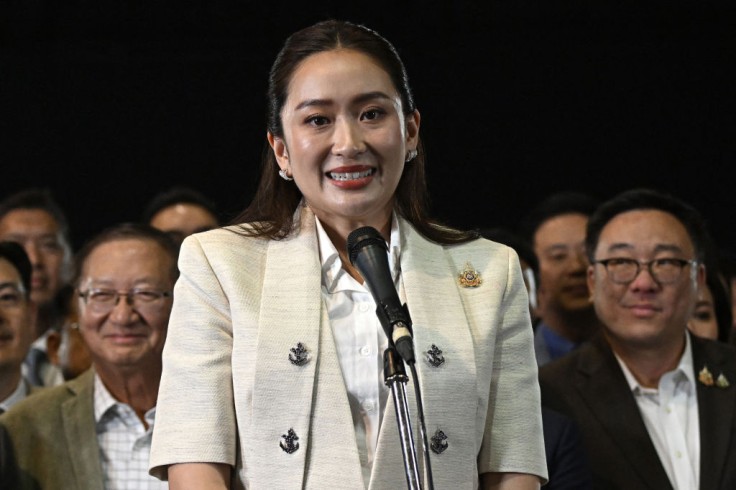Thailand's government, led by newly appointed Prime Minister Paetongtarn Shinawatra, has recently announced new changes to its highly anticipated 450 billion baht ($13.1 billion) "digital wallet" handout program.
Originally designed as a purely digital initiative, the plan now includes a cash distribution component, reflecting a strategic shift in the administration's approach to economic stimulation.
Details of the Cash Distribution Addition

According to Reuters, the original concept of the digital wallet handout involved transferring 10,000 baht ($292) in digital credit to approximately 50 million Thai citizens through a smartphone application. This credit was intended to be spent within local communities over a six-month period.
However, in a recent statement, Prime Minister Paetongtarn Shinawatra indicated that a portion of this financial assistance will now be distributed in cash, although specific details about the amount and distribution process are still being finalized. These details are expected to be clarified in an upcoming policy statement to parliament.
Economic Context and Rationale
The decision to introduce a cash component to the digital wallet initiative comes at a time when Thailand's economy is showing signs of strain. Southeast Asia's second-largest economy grew by just 2.3% in the April-June quarter, trailing behind regional peers.
With a forecasted growth rate of 2.6% for 2024, following a modest 1.9% expansion in 2023, the government's focus is squarely on jumpstarting economic activity.
The digital wallet handout was a cornerstone of the ruling Pheu Thai Party's election campaign, designed to inject liquidity into the economy and stimulate local spending.
Despite the anticipated economic benefits, the program has faced criticism from economists and former central bank governors, who argue that it may be fiscally irresponsible given the country's current financial constraints, according to Bangkok Post. The scheme has also experienced delays due to funding issues, with implementation now scheduled for the final quarter of the year.
Political Implications and Leadership Transition
Paetongtarn Shinawatra's leadership marks a new chapter for Thailand. At 38, she is the country's youngest prime minister, taking office after her predecessor, Srettha Thavisin, was removed by a court.
The policy shift in the digital wallet program could be seen as an effort to balance fiscal responsibility with the need to support vulnerable groups during challenging economic times.
Paetongtarn's father, Thaksin Shinawatra, a former prime minister and influential political figure, has publicly supported the digital wallet initiative. He has also endorsed the inclusion of cash distribution, particularly for aiding those most in need.
Revised Digital Wallet Program For Thailand's Economy
As Thailand prepares to roll out the revised digital wallet program in the coming months, the country's leadership is clearly exploring a complex economic landscape. By incorporating cash distribution into the digital wallet initiative, the government aims to balance immediate economic stimulation with long-term fiscal discipline.
The success of this program will likely play a crucial role in shaping Thailand's economic trajectory under Paetongtarn Shinawatra's leadership.
© Copyright 2025 Mobile & Apps, All rights reserved. Do not reproduce without permission.

















